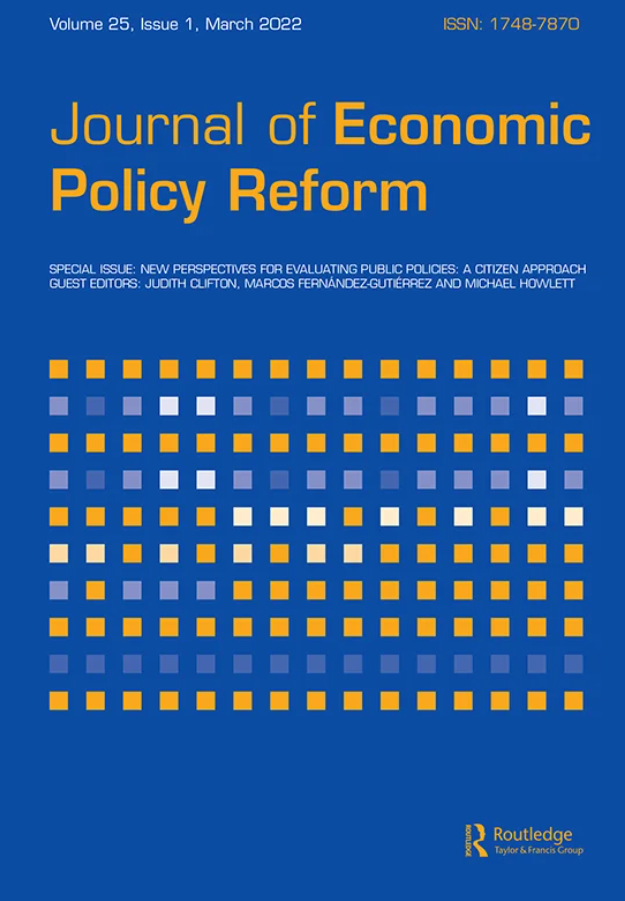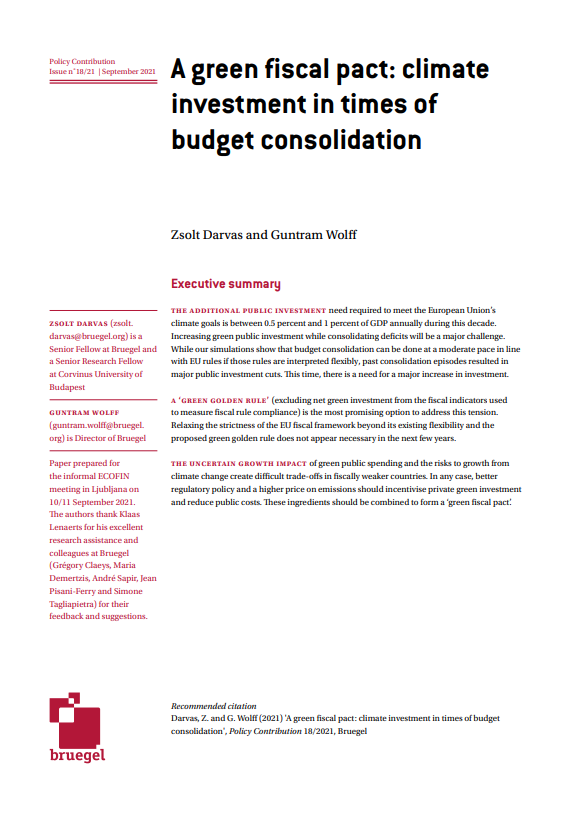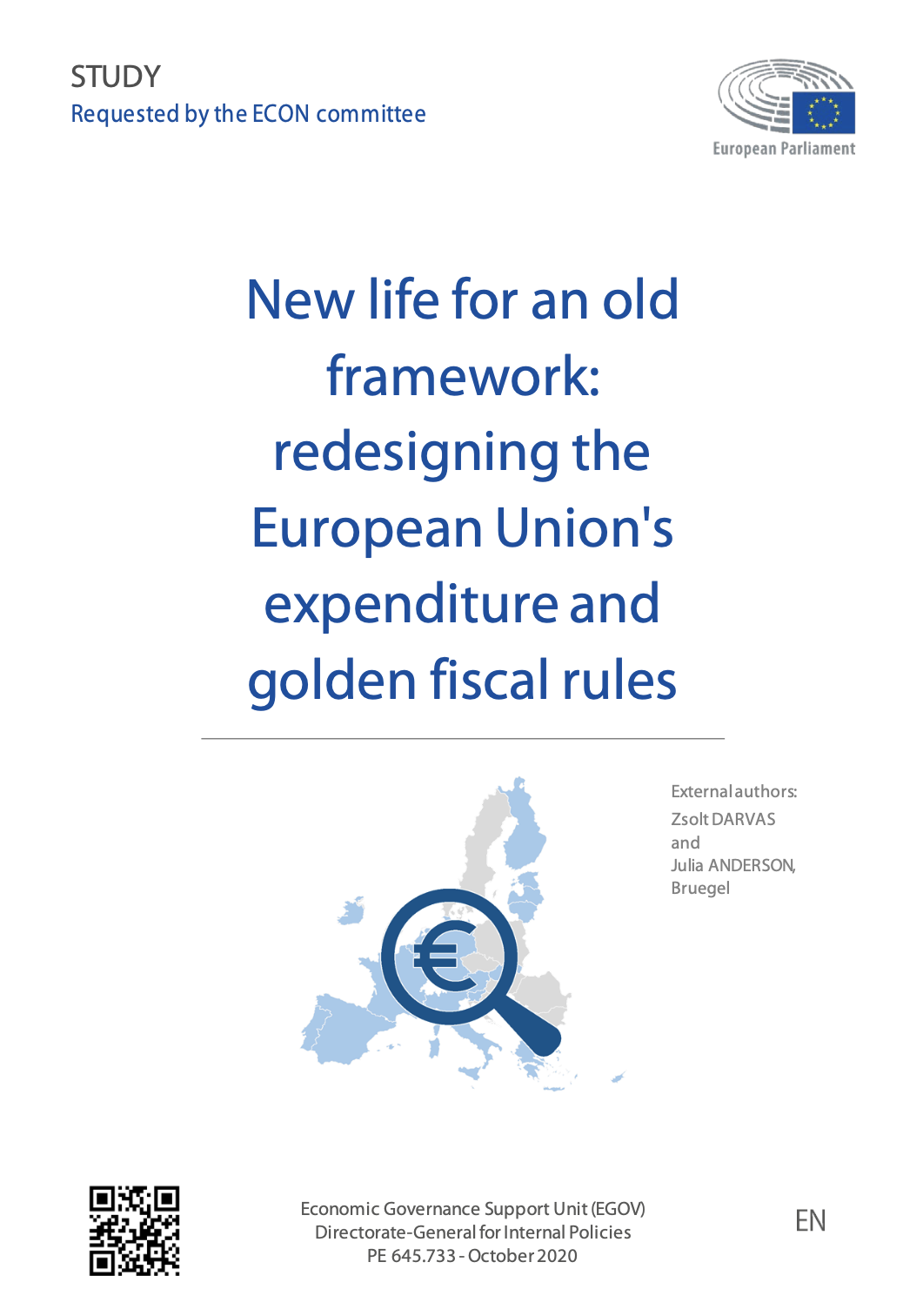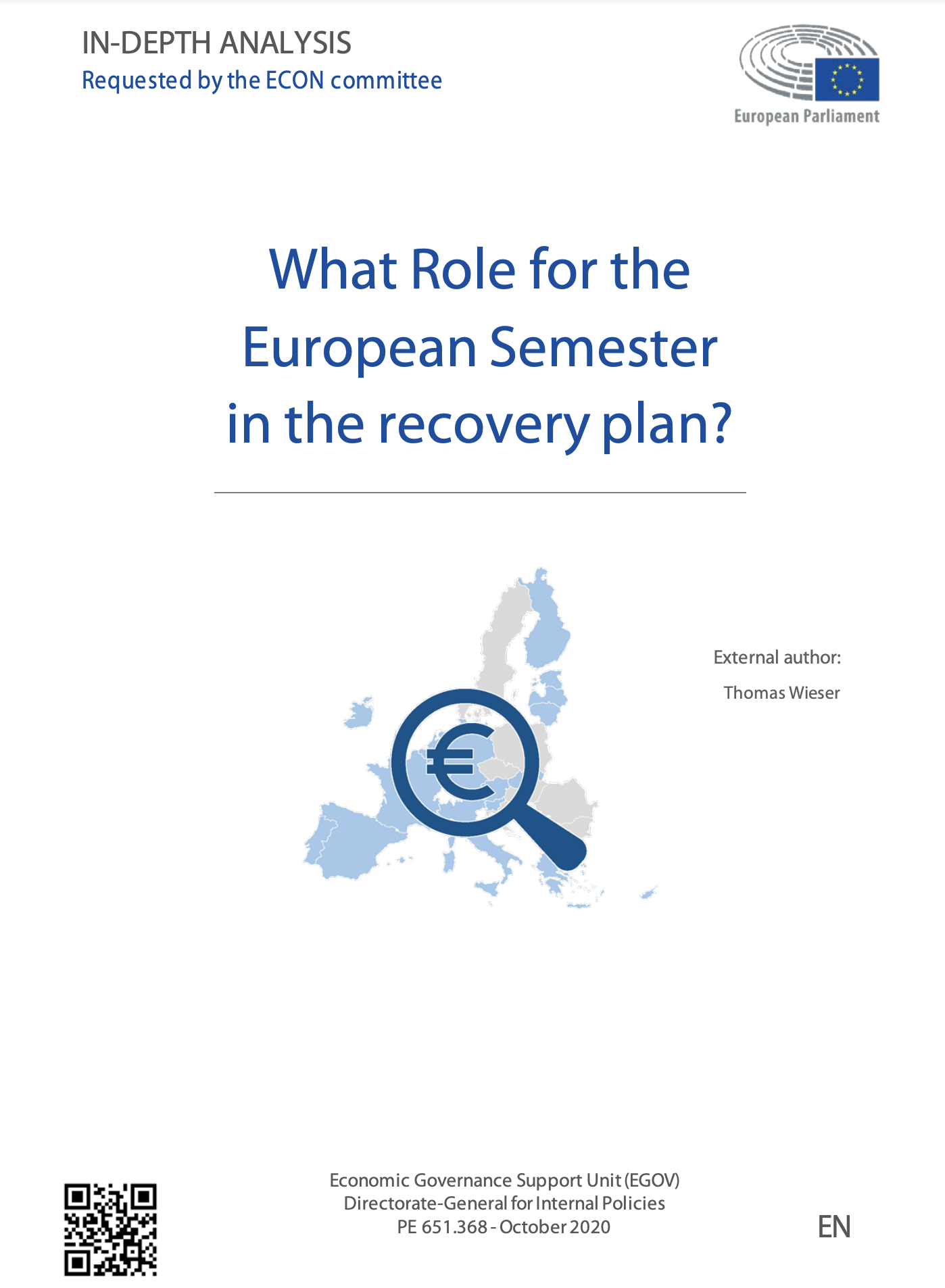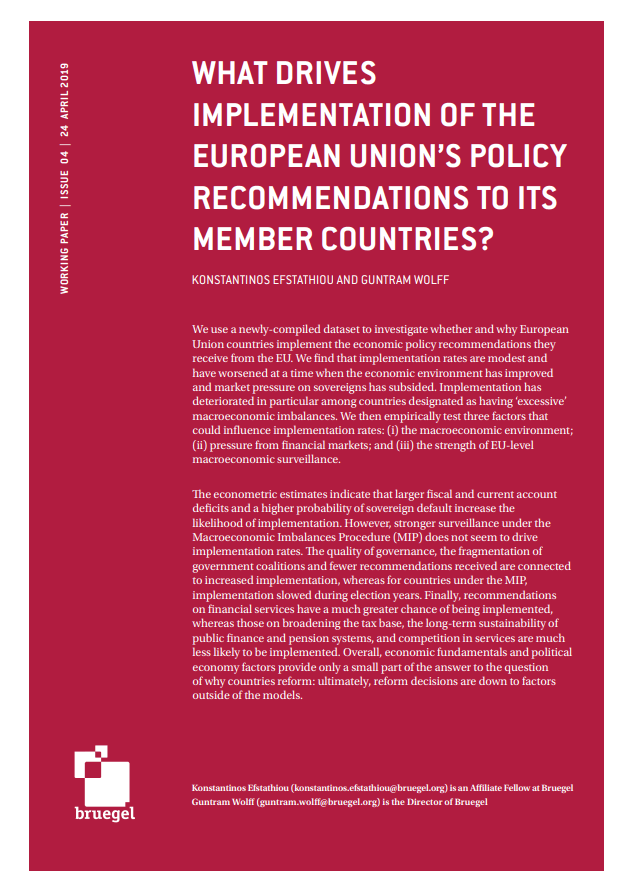Blog Post
Implementation of European Semester recommendations worsens further
Economic policy coordination in the EU hardly works: the implementation of economic policy recommendations made in the context of the European Semester was modest in 2011, and has deteriorated in each year since then.
The European Semester is a yearly cycle of economic policy coordination within the European Union. It is supposed to improve economic policy coordination within the union and ensure the implementation of the EU’s economic rules, such as those in the Stability and Growth Pact (SGP) and the Macroeconomic Imbalance Procedure (MIP). Each year, the European Semester ends with country-specific recommendations (CSRs) regarding budgetary and economic policies for each EU country not under financial assistance, as well as for the euro area as a whole.
Last year we calculated a European Semester reform implementation index, similar to the work of Servaas Deroose and Jörn Griesse. The index ranges between zero (no or limited progress on all recommendations) and one (full implementation of, or substantial progress on, all recommendations). The index is based on the European Commission’s qualitative assessment of the implementation of the CSRs.
We have updated our conclusions with the 2016 assessments of the 2015 CSRs. The figure below shows continued deterioration: while implementation of CSRs was modest at the inception of the European Semester in 2011, the implementation index has fallen steadily each year since then. The weak and deteriorating implementation is likely related to the fundamental problem of EU economic policy coordination, which we highlighted last year: national policymakers are accountable to their national parliaments and focus on national interests, which often differ widely across member states. It is therefore not all that surprising that economic policy coordination in the EU hardly works at all.
Republishing and referencing
Bruegel considers itself a public good and takes no institutional standpoint. Anyone is free to republish and/or quote this post without prior consent. Please provide a full reference, clearly stating Bruegel and the relevant author as the source, and include a prominent hyperlink to the original post.


